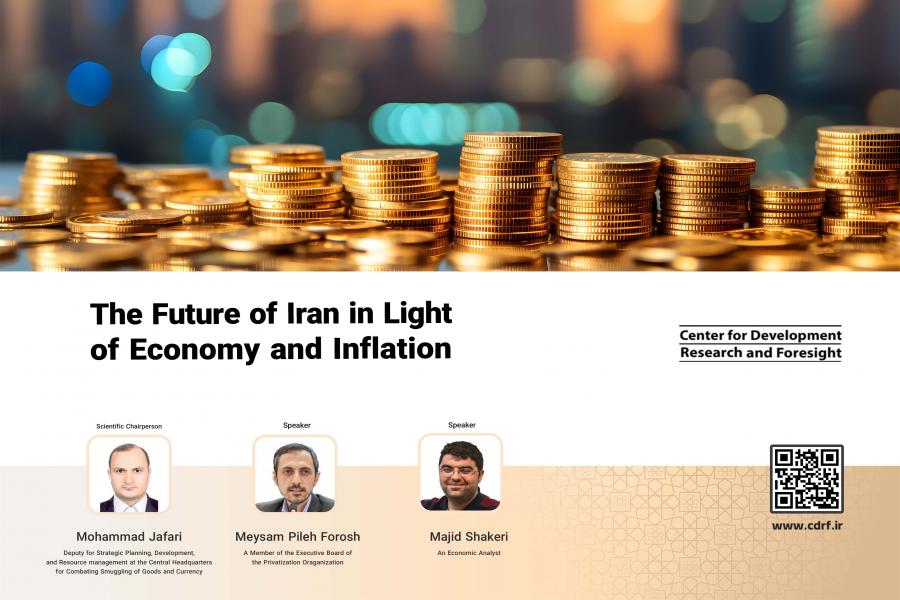
-
بررسی آییننامهها و دستورالعملهای برنامه هفتم پیشرفت
-
بررسی عوامل موثر بر افزایش تصادفات و تلفات جادهای و سوانح رانندگی و دادهکاوی تلفات انسانی
-
سازماندهی و بازآرایی فضایی آموزش عالی کشور
-
به روز رسانی سند ملی آمایش سرزمین
-
انجام مطالعات مناطق آزاد به عنوان نواحی پیشران اقتصادی کشور
-
اصلاح ساختار بودجه و پیاده سازی نظام یکپارچه مدیریت اطلاعات مالی دولت (IFMIS)

The Center for Development Research and Foresight hosted a pivotal conference titled “The Future of Iran: From an Economic Perspective” with the participation of leading economists and policymakers pointing out the persistent inflation, anemic growth, and deep-seated structural issues.
One key concern highlighted was the lack of a clear economic roadmap, leaving Iran at a crossroads between state control and free-market forces. Mohammad Jafari, Deputy for Human Resource at the Headquarter for Combating Smuggling, underscored the need for a cohesive strategy that tackles the root causes of inflation, currently forecast to top 30% next year, while wage growth lags behind at 20%.
Meysam Pilehvar, from the Privatization Organization, offered a ray of hope, suggesting sanctions could act as a catalyst for reform. He advocated for a shift away from oil dependence and government overreach, emphasizing knowledge-based industries, economic popularization, and empowering a young, skilled workforce. He also warned against policies that disproportionately benefit the wealthy, calling for a realignment that safeguards the interests of middle and lower classes.
Majid Shakari, an economic analyst, focused on the importance of monetary policy. He applauded the Central Bank's commitment to two key anchors – liquidity growth and a free-market exchange rate – as crucial for transitioning to a more flexible system. He further emphasized the need to revive formal payment structures to curb capital outflows and stabilize the currency.
The conference concluded with a palpable sense of urgency. While experts diverged on specific solutions, they agreed on the need for bold action. The onus now rests on policymakers to forge a cohesive strategy, embrace necessary reforms, and navigate Iran's turbulent economic waters towards a more sustainable and equitable future.
The conference served as a stark reminder of the challenges facing Iran's economy, but also offered glimmers of hope and potential paths forward. Whether policymakers can harness this urgency and translate it into decisive action remains to be seen, but the stakes for Iran's economic future are undeniably high.



